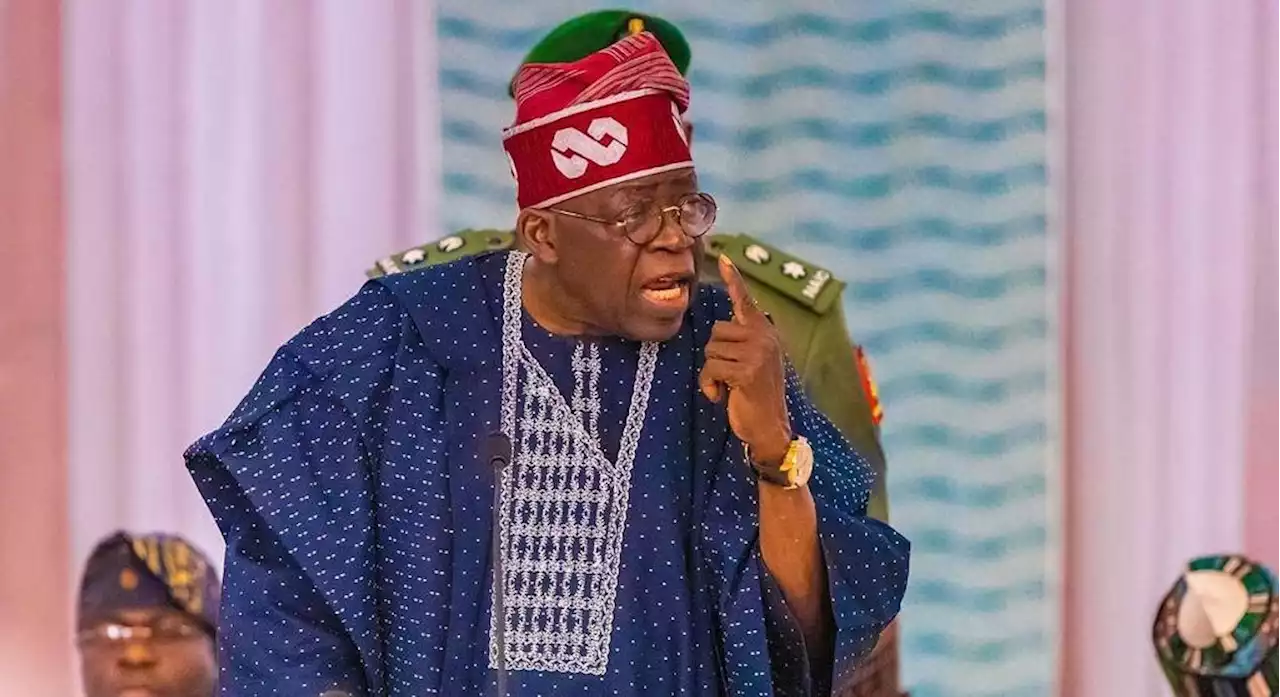Last week, the country found itself smack in the throes of a deepening malcontent, over a state of suffocating distress which triggered civil protests in several cities, before uneasy calm followed. The Nigerian Labour Congress (NLC) and the Trade Union Congress (TUC), the two bodies representing the country’s labour movement, had on Wednesday led a protest in Abuja, Lagos and several other parts of the country, in actualizing their threat to call out Nigerians to challenge the Federal Government over its obnoxious policy measures which were strangulating Nigerians across the country. The uneasy calm came through the intervention by the National Assembly who met the protesters directly, as well as a meeting between President Bola Tinubu and the leaders of the Nigeria NLC and the Trade TUC.
Top on the list of these obnoxious measures was the over 200% hike in the price of petrol, from between N200 to N250 to N617, as a consequence of the announcement of withdrawal of fuel subsidy by Bola Tinubu during his inaugural address as the President on May 29th 2023. Hence the rally by agitated crowds at the points of protest. In Abuja the protests took an unprecedented turn as the protesters invaded the National Assembly where they pulled down the main gate to gain access into the premises. In commendable quick response to the protesters, the Senate set up a three-man committee to engage the former – pursuant to a peaceful resolution of their grievances. In the interface between the National Assembly and the protesters, a seven-day window was accepted during which the apex legislature will try to resolve the cause of the protests. It now remains to be seen if and how the National Assembly will resolve the ‘Gordian Knot’ of fuel subsidy removal in seven days’ time. In a related development President Bola Tinubu also granted audience to the labour leaders (NLC and TUC), in the State House after the latter had protested over why the Chief of Staff to the President Femi Gbajabiamila was leading the negotiations on behalf of the government.
The protests were in the wake of an earlier failure the previous week, to reach an agreement in talks between the Federal Government and labour, which is pursuing a three point demand comprising a new national, minimum wage of N200,000.00 per month, rehabilitation of the country’s four refineries and the inclusion of labour in the oversight committee for these reforms. As at last count the state of affairs is that the Federal Government has up to August 19th 2023, to come to terms with the position of labour with respect to the issues at stake which in the main are two – the monthly minimum wage of N200,000.00 and the repairs of the refineries.
As an aside is the grouse of labour over the threat of commitment of its leaders for contempt of court for proceeding with the protests against a ruling by the National Industrial Court of Nigeria (NICN).The labour leaders had mobilised their members to proceed with the protest if the government proceeds with their prosecution in respect of the violation of the orders of the NICN. That may not be wisdom for the government to pursue with the grounds it has gained in respect of the accommodation it has established with labour.
Seen in context, the demands by labour especially with respect to the refineries is not new, and has been a recurring issue in all its talks with the immediate past government of Muhamadu Buhari. Apparently, where there may be some hitch in meeting labour’s demands will be in the area of the minimum wage of N200,000.00. It is on record that even the existing minimum wage of N30,000.00 has proved to be a uphill task for many employers in the country, including even state governments, not to talk of N200,000.00. The situation demands that the Tinubu administration dips deep into its vault of administrative strategies to demonstrate utmost dexterity in tackling the challenge of meeting labour’s demands as such are driven by the prevailing circumstances.
In this context it is a good sign that Tinubu has promised Nigerians that the Port Harcourt Refining Company Limited (PHRC) at Alesa Eleme will commence production in December 2023. This announcement coming at this time is believed to be a little late, as it would have been most impactful if it came in the course of the very announcement of the withdrawal of subsidy. It is a palliative announcement that would have saved the withdrawal of fuel subsidy from the status of a ‘banana peel’ – error in judgment – it ended up being.
However the December 2023 date for resumption of the PHRC should not be seen even by Tinubu as an article of faith, given the operational exigencies associated with the return of the facility to routine production. Nevertheless, while this pronouncement on PHRC may not be the magic wand for resolving the fuel subsidy crisis, it still constitutes one bold step by President to meet the demand by labour, no matter how marginal it is. It still constitutes a deft measure on which labour can place hope that something is being done by the government towards alleviating the crisis. Besides the focus on repairing the nation’s refineries should go beyond the PHRC, and also embrace with urgency the Kaduna and Warri facilities.
In the circumstance, if the early ‘baptism of fire’ from the experiences with the ‘banana peel’ of fuel subsidy regime have not rendered President Bola Tinubu a ‘wounded lion of sorts’, then he must be bargaining for something else. Yet Nigerians across the land stand more wounded than he can be and are waiting for him to rise to the occasion.

 Join Daily Trust WhatsApp Community For Quick Access To News and Happenings Around You.
Join Daily Trust WhatsApp Community For Quick Access To News and Happenings Around You.


